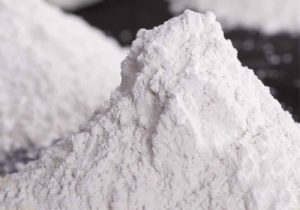
CP-10 Organoclay
CP-10 organoclay is a rheological additive made of organoclay. It is used in non-polar to moderately polar aliphatic and other solvent systems
Organophilic Clay Type: Camp Shinning New Material is a clay company that can offer you the best organophilic clay. Our organophilic clay has been specially treated to act as a gelling agent and viscosifier in oil-based and synthetic-based systems. You will notice an increase in carrying capacity and suspension proper

CP-10 organoclay is a rheological additive made of organoclay. It is used in non-polar to moderately polar aliphatic and other solvent systems

CP-MPZ organoclays is an modified bentonite that is used in solvent and resin systems ranging from non-polar to highly polar.

The CP-MPS rheology modifier is a type of organo clay rheological additive that is used in solvent and resin systems ranging from non-polar to high polarity.
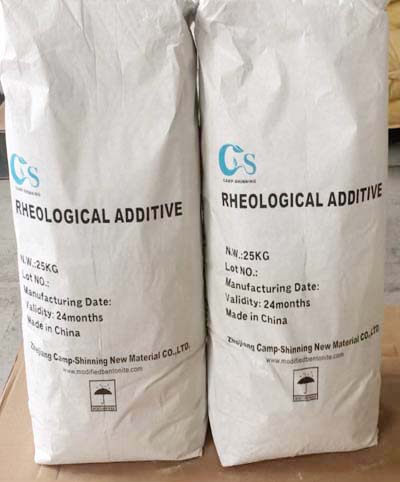
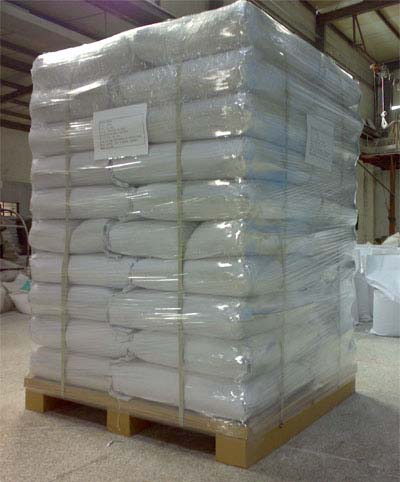
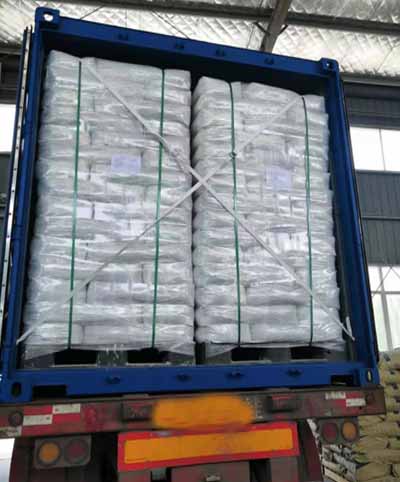
Organoclay Supplier / Manufacturer :
Internet address: https://www.rheologymodifiers.com/
Email address: [email protected]
Whatsapp / Wechat: +86-13185071071
Organophilic Clay Supplier / Manufacturer :

CP-EW Organoclay for Water Based paint. It is primarily employed in water borne paint systems,such as latex paint. So it is a good water based additive in paints,coatings,grease etc.

CP-EWS Modified bentonite It is employed in a water-borne coatings system. CP-EWS organoclay outperforms CP-EW in terms of thixotropy, transparence, and dispersion.

CP-WBS Rheology Modifier is rheological modified bentonite. It is mostly employed in water-borne systems.


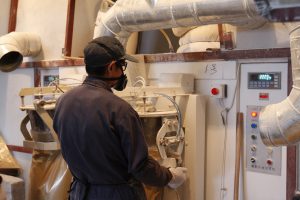
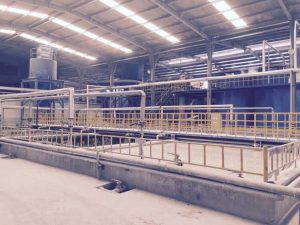

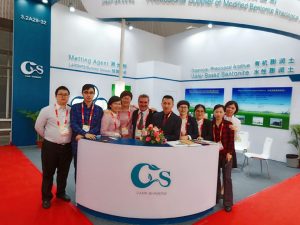
The Organoclay bentonite | Organophilic clay -specialized Zhejiang Camp-Shinning New Material CO.,LTD. and Hangzhou Camp-Shinning CO.,LTD. are subsidiaries of Camp-Shinning.
Camp-shinning concentrated on high value-added, high-technology organo bentonite series products, particularly in research, development, manufacturing, and sales of organic (solvent based organoclay) and inorganic bentonite (water based organoclay).
Our Organophilic bentonite clay finds widespread application in oil drilling mud, paint, coating, lubricating grease, adhesive, construction mortar, cosmetics, and waste water treatment, among other applications. A group of world-class professional users and distributors, such as SUN CHEMICAL,,SIEGWERK,LEHMANN &VOsS, and others, have acknowledged our dependable quality.
Current annual production of organic bentonite clay | organoclay is 20,000 metric tons, while refined bentonite production is 15,000 metric tons.
Our ISO 9001 quality system certification and IS014001 environmental management system certification, as well as our own mine with superior ore quality and production of proprietary technology, ensure the long-term quality and supply stability of our Organoclay bentonite | Organophilic clay.
Our mission is to provide users with superior Organoclay bentonite | Organophilic clay and services and to collaborate with them to achieve success and glory.
Internet address: https://www.rheologymodifiers.com/ and email address: [email protected]
Whatsapp / Wechat: +86-13185071071
Organoclay | Organophilic Clay CP-2 also named amine treated Bentonite.
In diesel oil based fluids,organophilic clay viscosifier CP-2 are used to increase carrying capacity and suspension properties, providing support for weight materials and improved cutting removal. Organophilic bentonite also aids in filter-cake formation and filtration control.
Properties
Composition Organically modified bentonite clay
Physical appearance Off white to tan free-flowing powder
Moisture content (105℃,2hr) ≤4%
Particle size (<76μm or 200mesh) ≥95%
Specific Gravity 1.6-1.8
Advantages
Effective viscosifier and gellant
Aids control of fluid loss to the formation
Increases emulsion stability
Improves cuttings carrying and hole cleaning capacity
Suspends weighting materials and other solids
Confers temperature stability to the fluid
Application
Base oil:
Diesel Oils
Crude Oils
Mineral Oils
Synthetic Oil
Viscosifying drilling Fluids:
Oil based drilling fluids
Invert emulsion fluids
Workover fluids
Completion fluids
Casing packs
Packer fluids
Spotting fluids
Package
Organoclay | Organophilic Clay CP-2 is packed in 50lb(22.7kg) or 25kg/bag or customized,multi-wall paper sacks or Kraft paper bag with PE liner or customized.
Storage
CP-2 Store in a dry, well-ventilated area with temperature of 0℃-30℃. Keep container closed. The quality guarantee period is 24 months.
Notice
The information on use is based on data which are believed reliable, but any recommendation or suggestion made is without guarantee or warranty, since the conditions of use are outside our control. All products are sold on the conditions that purchasers shall make their own tests to determine the suitability of such products for their purpose and that all risks are assumed by user. We disclaim any responsibility for damages resulting from careless or improper handling or use. Nothing herein is to be taken as permission, inducement or recommendation to practice any patented invention without a license.
Internet address: https://www.rheologicaladditive.com/ and email address: [email protected]
Whatsapp / Wechat: +86-13185071071
Organophilic Clay Type
Organophilic Clay Type: Organophilic clays are frequently employed in paints, lubricants, and oil drilling mud. They possess outstanding dispersibility and complexing characteristics. In addition, they are economical and effective thickeners in numerous coating applications. They also exhibit superior Thixotropy. Organophilic Clay Varieties and Uses A very rheologically active variety of exchangeable clay, organophilic clay is a type of exchangeable clay. Organophilic clays activateated beforehand Organophilic clays that have been preactivated can be utilized in a range of industrial applications. Preactivating clay prior to usage will facilitate its dispersion. There are numerous preactivation methods, including the use of solid alcohols that have been finely split. In certain instances, the use of liquids is inappropriate because the liquids cannot be evenly distributed throughout the clay. Dry blending organophilic clay with a propylene carbonate/silica mixture is one approach for producing the compositions. These compounds are utilized as rheological additives in non-aqueous liquid systems, including paints, varnishes, enamels, waxes, adhesives, and laminating resins. Organophilic clays’ dispersion capability is proportional to the ratio of polymer to dispersant. To promote thixotropy, preactivated organophilic clays are utilized in drilling muds. This quality makes them appropriate for high-temperature deep drilling. Organophilic Clay Type To improve the performance of oil-based muds, preactivated organophilic clays are an excellent option. The clay’s silicone content improves its fluidity. Additionally, they can be mixed with a viscosifier to create a gelling slurry. The inclusion of emulsifiers may enhance the performance of oil-based muds further. Organoclay can be easily manufactured by reacting clay suspensions with certain organic solutions. Electrostatic adsorption is the mechanism utilized by modified organic clays. Moreover, by introducing organic functions, the clay surface can be transformed into a hydrophobic state. Organophilic Clay Type : applications The usage of organophilic clays in polymer nanocomposites. Their wonderful characteristics and behaviors have made polymer research a cornerstone. Clays utilized in polymer nanocomposites can be either natural or manufactured. This essay will examine the different industrial applications of organophilic clays and the potential for their future development. Through the ion exchange mechanism, organophilic clays can react with organic substances containing cations. The organic cations, which are often alkyl groups, can affect the liquid’s rheological properties. Moreover, organophilic clays can be utilized in thickening and gelling operations. Specifically, organophilic clays are utilized to produce lubricating greases from liquid hydrocarbons. Organophilic clays are useful for oil-based paints and lubricants in particular. These substances can also be utilized as rheology-regulating agents. Organophilic clays are applicable in numerous industries, including the chemical industry. They can be utilized to stabilize paints and treat oilfield fluids. They are also utilized in structural ceramic goods, cement, and asphalt emulsions as a lightweight aggregate. Additionally, clays can be preactivated to increase their solubility and dispersibility. As a preactivator, one technique uses finely divided solid alcohols. Utilizing these chemicals in an organophilic clay method facilitates the dispersion of the clay. Their readiness Through a base-exchange reaction, organophilic clays absorb ammonium ions. The preparation of organophilic clays involves a two-step procedure. The first stage is the chemical alteration of a bentonite clay that does not swell. This chemical alteration increases the hydrophobicity of an organic clay. Using a fixed bed technique or an ion-exchange resin column, this alteration can be accomplished. Alternately, organophilic clays may be produced using a dry method. This technique is superior to a wet procedure because it results in a greater separation of layers. Organophilic Clay Type Organophilic clays are produced through the reaction of highly refined bentonite clay with an organic quaternary ammonium molecule. The resulting clays are very hydrophobic and suitable with a wide range of oyanic liquids. Organophilic clays are commonly ion-exchanged with quaternary ammonium ions and are generated from smectite-type clay. These clays, unlike conventional organophilic clays, are biodegradable and can be used into emulsion drilling fluids.
Organoclay Supplier / Manufacturer :
Internet address: https://www.rheologymodifiers.com/
Email address: [email protected]
Whatsapp / Wechat: +86-13185071071
Organophilic Clay Supplier / Manufacturer :

CP-180 organoclay is an organo clay rheological additive (modified montmorillonite) designed specifically for use in solvent-based systems

CP-34 organoclay is a modified bentonite that has been specifically designed for use in solvent-based systems.

CP-EDS modified bentonite is a kind of organo clay rheological additive. It is used in systems of medium polarity and high polarity system.

CP-992 Organophilic Clay, the wet process improved viscosifier and gelling agent . It is a rapidly dispersing.

CP-982 Organophilic Clay is an amine treated bentonite with a moderate temperature performance.

CP-150 Organophilic Clay is a self-activating organoclay that disperses easily and performs well in diesel, low aromatic mineral oil, modified vegetable oil, and synthetic base fluid formulations.
Organophilic Clay Type